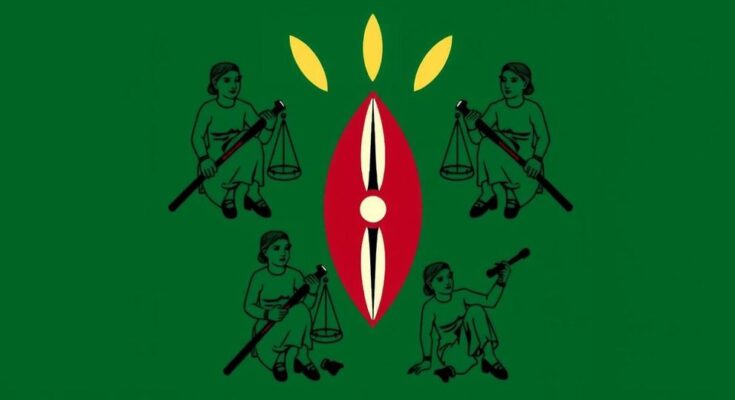Kenya’s deportation of four Turkish nationals, who were recognized as UN-protected refugees, has sparked debate over its compliance with international asylum laws. Though the government justified the deportations based on treason charges in Turkey, there are concerns about the prior rejection of extradition requests by multiple countries. Human rights organizations are protesting this action, emphasizing Kenya’s responsibility to protect refugees.
The recent deportation of four Turkish nationals protected by the United Nations has raised significant questions regarding Kenya’s adherence to international refugee protection laws. Foreign Affairs Principal Secretary Korir Sing’oei stated that the deportations were executed under the directive that the individuals faced serious treason charges in Turkey. Nonetheless, it has come to light that other nations had previously denied Turkey’s requests for their extradition, complicating Kenya’s position and obligations under international law. Human rights groups have voiced strong objections to these actions, arguing that the affected individuals, identified as Mustafa Genc, Huseyin Yesila, Ozturk Uzun, and Alpaslan Tasci, were legally recognized as refugees under UN protection. Following their deportation to Turkey on October 19, Amnesty International expressed grave concerns, especially given the context of Turkey’s ongoing crackdown against individuals linked to the Gulen movement, following a failed coup in 2016. Notably, all seven individuals detained in connection with this incident had affiliations with organizations tied to the Islamic preacher Fethullah Gulen, who has claimed asylum in the United States. This scenario echoes Kenya’s previous controversial decisions regarding refugee management, notably in 1990 when authorities threatened the deportation of over 1,000 Ugandan and Rwandan refugees, despite interventions from the UNHCR.
Kenya has long served as a refuge for individuals seeking asylum, yet the recent actions regarding the Turkish nationals highlight a potential departure from its international responsibilities. The Turkish government is known for aggressively pursuing those perceived to be supporters of Fethullah Gulen, following an alleged coup attempt in 2016 that led to significant political repression in Turkey. This backdrop is critical in understanding the complexity and implications of Kenya’s recent deportations, as it raises fundamental questions regarding the protection of refugees within its borders.
In conclusion, the deportation of Turkish nationals from Kenya raises critical legal and ethical questions about the country’s commitment to international refugee protection. The complexity of the situation intertwined with prior international legal precedents demands a thorough examination of Kenya’s obligations and the potential consequences of its actions. As human rights organizations continue to call for accountability, the implications of these deportations could reverberate far beyond this incident, impacting Kenya’s international standing as a refuge for those fleeing persecution.
Original Source: www.mwakilishi.com




